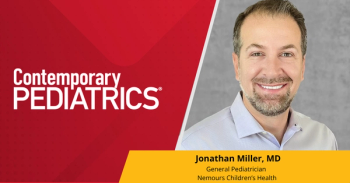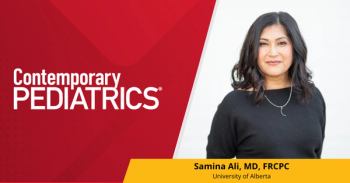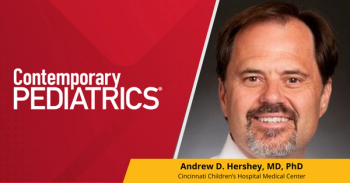
Linking parental age and prenatal development
Patricia Hunt, BS, MS, PhD, discusses how prenatal development is impacted by parental age, along with the significance of researching this association.
In this Q&A session that
Contemporary OB/GYN®:
Hi, I'm Celeste Krewson with Contemporary OBGYN, and I'm here with Dr. Hunt to discuss the connection between parental age and prenatal development. And would you like to introduce yourself?
Patricia Hunt, BS, MS, PhD:
Yes, thank you. Hi, Celeste. I'm Pat hunt. I work at Washington State University where I run a research lab. And I've been interested in [parental age] and the effect on female reproduction for, gosh, about four decades now.
Contemporary OB/GYN®:
Well, thank you for joining me today.
Hunt:
Thank you for having me.
Contemporary OB/GYN®:
So to get started, can you give a brief overview on the connection between parental age and prenatal development?
Hunt:
Yes, you know, it all started with aneuploidy, chromosomally abnormal eggs, and the recognition that the incidence of these abnormal eggs is strongly influenced by maternal age. And the age curve, which I'm sure everyone has seen, shows this amazing rise in the 30s, an exponential increase. And so, my husband… and I have spent our careers just trying to understand the basis of this age effect. And what we've concluded is, it's much more interesting than we ever thought it would be. We thought, there must be one cause, and if we find that cause, maybe we can find ways to work around this and reduce the incidence of abnormal eggs. But after many years of looking at the problem, and seeing the work done by others in the field, we've concluded that it's really a complex constellation of effects that conspire to create this age effect. And the bottom line for me is we're responsive to our environment, and I think what we're seeing with age is, in part, an effect of this responsiveness.
Contemporary OB/GYN®:
All sounds very interesting, and like you said, very complex. And on a similar similar note, with recent research, is there anything that stuck out to you? Has there been any recent research that you want to highlight?
Hunt:
Well, there's been a lot of important research. Yeah, I think we've learned a lot. You know, one of the things that's fascinating about making an egg is it takes decades to do it. The process begins during fetal development and isn't complete until just before the egg is ovulated and the and the first division of the of the chromosomes occurs. And so, we've focused a lot on, you know, what causes this change, and of course, the process of those like growth is controlled by hormones. So, one of the things we've been interested in is, through subtle changes with age that impact the signal center that growing Ozai do they do they influence the incidence of, of chromosomally abnormal eggs? And I think the answer is yes, but I think there are also a bunch of other factors, because this is such a long, protracted process. One of the things that's come out is, you know, we lay down these proteins that are essential for holding chromosomes together, these are laid down during fetal development, but they're not really put into play until the adult is sexually mature. So maybe there's a decay in some of these proteins. And I think that's true, too. And I think also, one of the most interesting things is, the cell cycle control is very different in the O site than it is in during spermatogenesis, or during somatic cell division. And that's one of the things that makes it vulnerable to error. So, there are 3 different factors that conspire, but there's a fourth, that's really interesting, and that is what happens during fetal development is really critical to setting the stage for normal chromosome segregation. And what we're finding is that some of the subtle changes that may occur in mother's environment can influence how those early events are orchestrated in the fetal ovary. So, in fact, it's a really, really interesting problem.
Contemporary OB/GYN®:
And what is the significance of all this research? What makes it important to study?
Hunt:
Well, you know, we are not very simple, experimental animals. And so, one of the things humans have done is we have delayed the start of our families. So, we don't reproduce when we probably optimally should, which is in our late teens. And of course, professional women are pushing back and pushing back starting their families. So, we have a lot of women trying to get pregnant in their mid-30s or early 40s and ending up in assisted reproductive clinics, trying to get help because they're having trouble conceiving. So, if we had a better understanding of how we could circumvent some of these effects of age, obviously, we could make it easier for some of these women to have normal babies. But, you know, in one sense, we're, we're making a bad situation worse by postponing the start of our families.
Contemporary OB/GYN®:
That's all very interesting. We’re just about ready to wrap up, but is there anything you want to add first?
Hunt:
Well, yes, my major mission now is in fact, not age, but it's the environment because one of the things that I'm most concerned about is is all of the chemicals that have become common environmental contaminants. And we accidentally stumbled upon effective Bisphenol A on the Perry Abila Tory o site and saw an increase in chromosomally abnormal eggs in the mouse. We've since gone on to study it, but I would say these chemicals are probably the biggest concern facing, you know, maternal-fetal health because they not only influence the mother and influence the chance of a chromosomally normal egg and embryo, but they also influence that developing fetus and can induce changes in that fetus that can have lasting effects on that individual and may affect subsequent generations. So, I think that there's a lot that we need to know and need to think about about the effects of these chemicals and how they're influencing our efforts to help women have normal children.
Newsletter
Access practical, evidence-based guidance to support better care for our youngest patients. Join our email list for the latest clinical updates.








